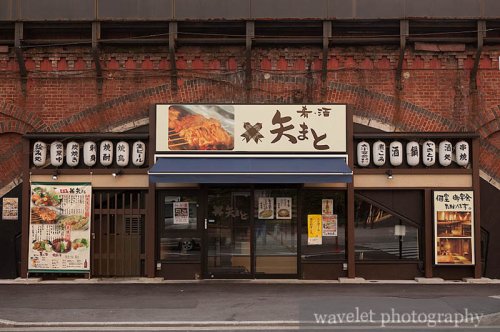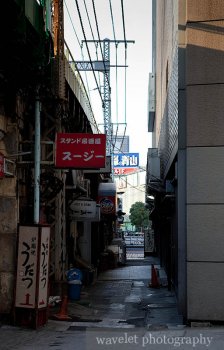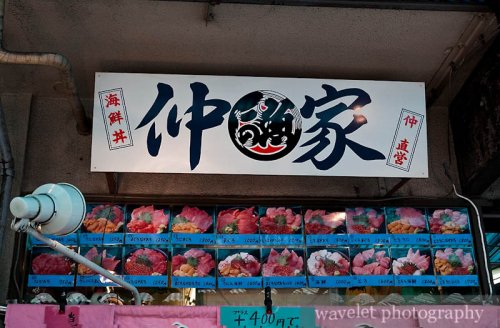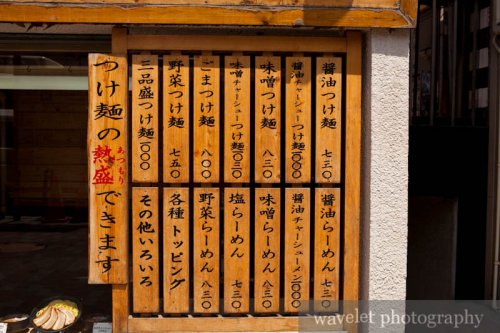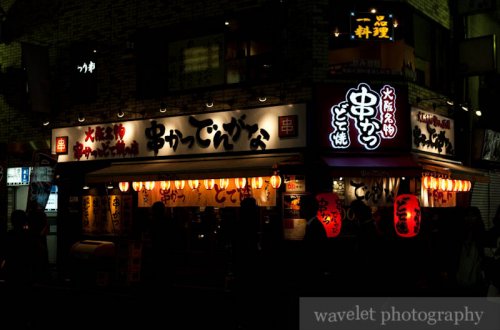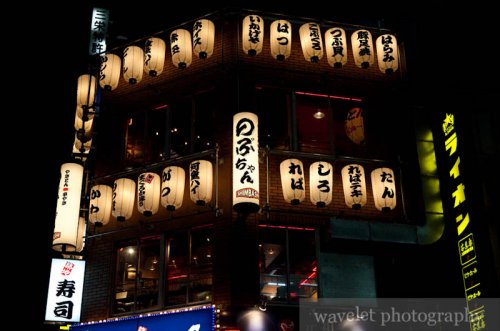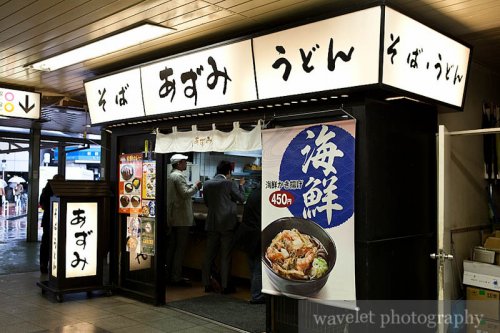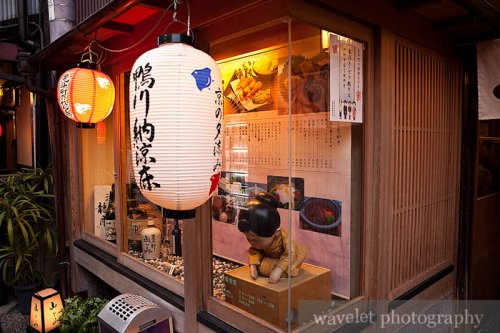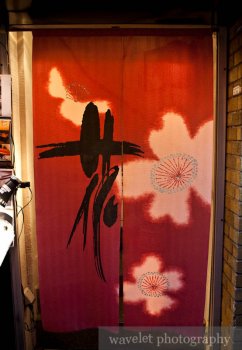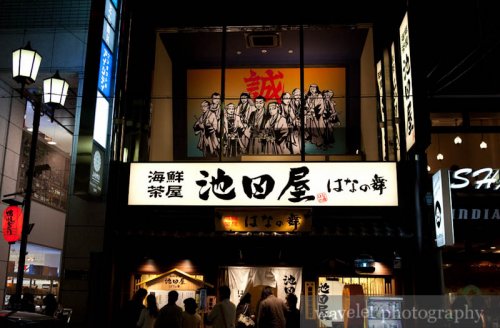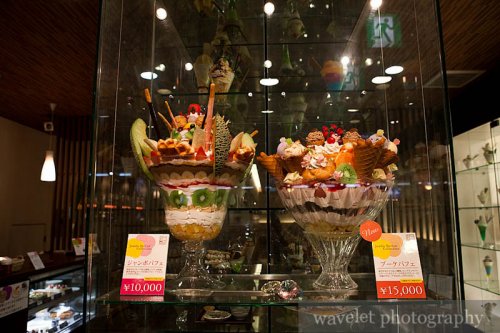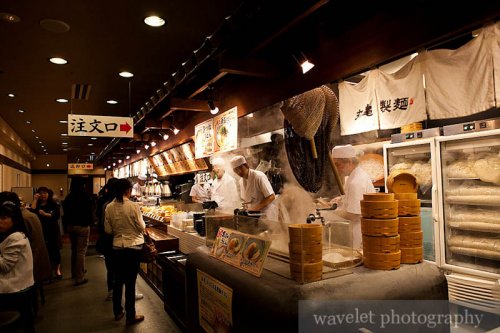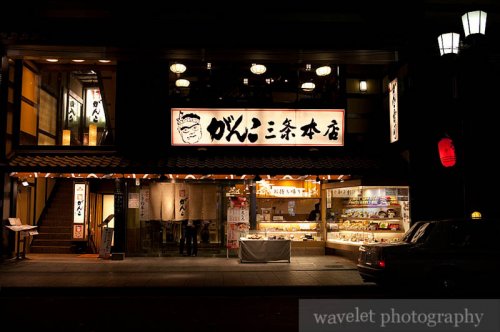We arrived in Tokyo at Sunday night (4/25). I woke up at 4AM in the morning the next day and couldn’t get to sleep any longer, so I decided to have a morning walk around the city. Our hotel is only 5-minute-walk to Ginza (银座). With the reputation of one of the most expensive districts in the world, Ginza failed to impresse me. However, I was surprised by the density of restaurants in the area. Every block, every corner, under the bridge, in the subway station, next to the most high-end store or in the 3-feet-wide alley, they are everywhere. Many multi-level buildings are all taken by restaurants. When you have too many choices, it’s actually harder to make decision. Luckily, my sister has a friend who helped us out in Tokyo. We went to almost every restaurants he suggested.
The plenty of restaurants is the direct result of Japanese’ work culture. I never saw these many of people on the street at 10PM in a workday. It’s a norm in Japan for men to work overtime everyday to at least 7PM and then have dinner together with their coworkers after work. They may go back to work till midnight. While humble and quite in the day, they crowd every restaurants, drinking, smoking and talking loudly at night. I’ve heard that wives in Japan would look down their husbands if they get home early, now I know it must be true.
On one hand this is the time that working men can finally relax; on the other hand it shows how much pressure they carry everyday. It’s not unusual to see people having dinner alone in the restaurants, sometimes still working on their jobs. There are small noodle houses that provide no seat at all, so people in a hurry just stand there, finish their bowls and leave. A lot of people fall sleep in the subway while the train take them home at the midnight. This work culture and long commute time effectively cut their connections with the family. It makes a distinct comparison to American working styles.
